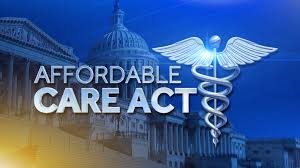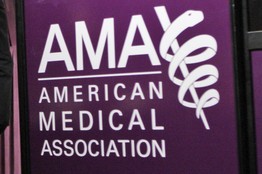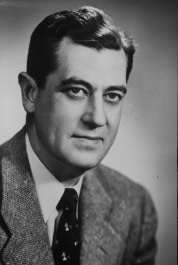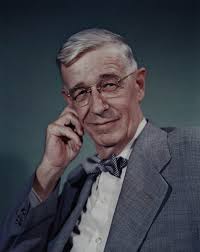Related Topics
Old Age
New topic 2019-04-09 16:04:33 description
Obamacare: Examination and Response
An appraisal of the Affordable Care Act and-- with some guesswork-- its tricky politics. Then, a way to capture major new revenue, even paying down existing Medicare debt, without raising premiums or harming quality care. Then, an offering of reforms even more basic, but more incremental. Finally, the briefest of statements about the basic premise.
Right Angle Club: 2014
New topic 2013-11-19 20:22:11 description
Healthcare Reform: Looking Ahead (2)
The way to make certain you have enough -- is to have too much.
All Right, Hippocrates. So What's the Basic Problem?

|
| Affordable Care Act |
It took me a chapter to describe what went wrong with the Affordable Care Act. Five chapters to describe what should be done about it, in whole or in part. But the best final goal of it all, one which has the best chance of making medical care affordable, can be described in a few words. Until we decide where we want to go, we are unlikely to go there. and I simply can't believe that modification of health insurance is worthy of all this uproar. Health insurance executives may be forgiven for thinking so, but it is hard to imagine the rest of the nation has such priorities. Without stopping to argue that unprovable point, I offer what I believe is a self-evident, and better, goal. One paragraph more of history is needed.

|
| AMA |
Medical turmoil in its present form seems to have begun in the Progressive Era, sometimes called the Gilded Age, which briefly preceded and probably had something to do with, the First World War. It certainly involved President Teddy Roosevelt, who first proposed National Health Insurance, generating considerable appeal within the American Medical Association. After a brief flirtation, the Association then changed its position and has been more or less opposed ever since. At that time, the AMA turned its attention to the so-called Flexner Report of 1914, which advocated the physical and managerial relocation of medical education into the existing Universities. Out of this grew an unexpectedly vigorous medical research environment, responsible in time for the amazing transformation of medical care which characterized the 20th Century. This transformation which in turn probably generated the idea that Medical Schools were the natural center of the profession, a suggestion which greatly annoyed the AMA, triggering an unfortunate power struggle between medical school faculty and their practicing alumni. Since this battle divided those who were paid salaries from those whose income came from patient fees, parochial teaching issues were allowed to migrate into conflicts about how all doctors should be paid. From that the two groups soon split over the payment arrangements of health insurance, which also seeped out into questions of how all "health" care employees were to be paid, especially nurses, and thus who should manage them. In short, the subject material for a restructuring of medical payment wandered around for a century, getting further and further from resolution as new voices were heard, times changed, and the new arguments had little to do with the old ones. To summarize this century of argument in a few sentences leaves everyone confused about the topic, but certainly leaves no participant in a position to criticize the others. It is even possible to claim this bickering was good for the profession, because, for all the scolding, medical care has undeniably flourished in the meantime. I only picked up the trail, joining the profession during the Second World War. I was a practicing physician for fifteen years before Medicare made its appearance. My viewpoint may be narrow, but I have been at work in Medicine before, during, and after most of the major changes in the medical care of the last seventy years.
To come to the present concluding point, I believe the American medical system actually does have its own unique plan already for the future of health care. Never mind what the rest of the world does; they never had the resources to do what comes naturally to Americans. It goes like this: We resolved without saying so, to pour tons of money, in amounts the Europeans cannot even imagine, into a medical system populated by the best students we could identify. This somewhat pampered priesthood has one main mission: eliminate the disease, and thereby eliminate the cost of disease for everyone, rich or poor, the world over. Some physicians are more idealistic than others, and there is some grumbling. But scarcely anyone dares to challenge the results, summarized by thirty years of increased life expectancy achieved in a single century. Arithmetic alone makes it impossible to repeat that performance.
Sounds pretty grandiose, doesn't it? As to costs, how much do we spend, today, on polio, tuberculosis, rheumatic heart disease, and thirty other diseases I once spent my time with? And how little will we soon be spending on Hepatitis C and HIV? A lot, at first, but in ten years, probably very little. The great killers of my medical student days, like syphilis, subacute endocarditis, heart attacks, and strokes, are declining fast, so probably no more than a quarter of what they used to be. People have their gall bladders and appendices removed, but they don't even go to the operating room to do it. Improved longevity is taken for granted. Doesn't anyone want to live an extra thirty years? Doesn't everyone want his cataracts and knees replaced? The list goes on so long it is ineffective to recite it. We got our orders, and we delivered. No other nation on earth could even dream of such a project, and yet someone still occasionally challenges me with statistics about infant mortality in Luxembourg. Our inpatient psychiatry is a disgrace, yes I will give you that. But wipe out disease, that's the way to reduce health care costs for everyone. We're going to do it, and nobody else has a prayer of a chance. It is remarkable that costs keep rising while disease keeps disappearing, but even that trend must come to an end. Inevitably, there will be a reckoning of details.

|
| NIH, Jim Shannon |
It's probably fair to ask who told us to do such a thing. Everybody did, and nobody did. As much as anybody, my contemporary at the NIH, Jim Shannon exemplified this dream of the conquest of disease, and was in a position to do something about it. Maybe it was Vannevar Bush, who was the same sort of scientific evangelist. But somehow that search doesn't feel like the right one. What feels right is that the generation of Americans who conquered the armies of the world just pushed us onward to conquer a little thing like a disease. American exceptionalism did it, and right or wrong is going to get it done. It's true that I worry we will keep people on thirty-year vacations, which our grandchildren will take at the beginning of life instead of the end of it. It begins to sound as though Reverend Malthus may have been right about feeding all these people, and maybe there will be problems with employment. But that isn't our mission. We feel the nation wanted very badly for us to do what we did, and they are just going to have to whip up a generation of environmentalists, or sociologists, or banjo players -- if there are to be new directives. Passerby, go tell the Spartans: We lie here, forever obedient to their laws.

|
| Vannevar Bush |
Since I am about to launch, in closing, a proposal for revising the goals of American health care, it seems appropriate to begin it by recalling a remark of one of my medical school teachers, delivered at the close of the Second World War. "The goals for medical research,' said this pathologist, "are relatively small. When we've found a cure for cancer and arteriosclerosis, we're about done." Since the current generation of students would regard anything known before 1945 as not worth knowing, and the treatment of cancer has not advanced much since the time of this prophecy, we had best be modest about what we already know. It is widely stated that fifty percent of drugs currently in use, was totally unknown only seven years ago. That may well be true and may continue to be true for centuries to come. The limits of knowledge for medical students were once defined in a study by Howard Becker called Boys in White and go as follows: First-year medical students are determined to learn it all. By sophomore year they have decided you can't possibly learn it all, so you only try to learn what is important. By Junior year even that seems impossible to learn, so you only try to learn what is going to be on the tests. Essentially what this says is that the faculty finally gets control of things by Junior year, and their selectivity defines the horizons of what students pay any attention to.
This is a strangely limited selection of topics, which is finally set straight by the training directors of postgraduate Residency programs. Having played each of these roles in my time, I feel the residency directors have it about right, but only for inpatient care. Outpatient care is now the source of nearly half of hospital revenue, and the proportion is rapidly growing. The inpatient faculty reasserts control by writing the Board Examinations, and the final mixture is defined as the present state of medical knowledge, but it remains strangely neglectful of the outpatient half of medical care (notice, I did not say health care, which has become a rapidly growing world as non physicians assert control over funding sources).
But even an assessment based on all these biases may still not be a good measure of where Society stands in its search for scientific progress. For one thing, we haven't been serious about science for very long. The first course in science, of any sort in any American university, was only offered at the time of the Civil War. Although I had already decided to enter the Medical Profession by the Second World War (eighty years later), I nevertheless chose a college major more suitable for a gentleman. English literature, now that was the thing. In a few elite colleges, it still is. A bachelor in engineering is a degree for people who invent things; a bachelor in science was for those who would discover things. But a bachelor in the Arts was a degree for someone who planned to run things. Until that witticism loses its bite, we haven't really become serious about how much we can depend on the average patient knowing what he needs to know, to assume cost-effective control of his health. Young women and mothers chatter about pediatric topics quite a lot, but for the rest of the population, the state of medical information remains what the physician priesthood understands and has the time to communicate.
In 1945, the limits of medical knowledge were thus only two: how to cure cancer, and what to do about atherosclerosis. Today, we finally discover that sleep has a lot to do with the circulation of spinal fluid through the brain, which sounds about as advanced as Harvey's discovery of the circulation of blood in 1642. This year it became possible to see that protein synthesis is like a zipper in thousands of ribosome molecules inside zillions of cells inside you, me, Eucalyptus leaves, and dinosaur bones. Since cellular chemistry is pretty much protein chemistry, the potential for drug synthesis, to say nothing of understanding cell activities, is immense. I have had a reasonable acquaintance with a couple of dozen Nobel Prize winners, and mostly I don't know what they are talking about. The point is this: right now, it is practically impossible to know how much more there is to know, and therefore what discoveries are possible in the next twenty-five to fifty years. My pathology professor was obviously pitifully ignorant in 1945 about what lay ahead, and we haven't even cured cancer yet. How long it will take for a lot of billionaires to be created after they discovered a cure for something, isn't known and isn't knowable. But God bless them all, because the money they will save us in the cost of medical care, simply staggers the mind. Who will care about the cost of health insurance, when every disease the present generation of medical students will learn about, has disappeared? On the other hand, perhaps the scientific opportunities which are uncovered will trivialize the new pharmaceuticals of only seven years ago, which are half of the drugs presently in use. As long as the music keeps playing, we will have to keep dancing and hope for the best.
Originally published: Sunday, June 15, 2014; most-recently modified: Thursday, May 02, 2019